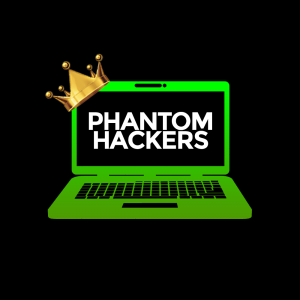In today’s digital age, where our lives are intricately intertwined with the virtual world, the security of our online accounts has become a paramount concern. Cybercriminals, commonly referred to as hackers, are constantly devising new strategies and utilizing advanced tools to breach the security of online accounts. This article delves into the top three tools that hackers often employ to compromise accounts, shedding light on the importance of cybersecurity and vigilance in safeguarding our digital identities.
Legit Site To Hire Money Transfer Hacker
🌐Visit: phantomhacker.su
📧Email: [email protected]
Contact: 👉 Hit here
Article:
The digital landscape has transformed the way we live, work, and communicate. However, this convenience comes with its share of risks, with cybercriminals constantly devising new methods to gain unauthorized access to our online accounts. In this article, we’ll delve into the top three tools hackers frequently use to breach accounts and discuss ways to fortify our defenses against these malicious activities.

Phishing Attacks: A Sneaky Entrée
Among the numerous tactics hackers employ, phishing attacks are undoubtedly one of the most prevalent and effective methods. Hackers ingeniously craft emails, messages, or websites that appear to be from legitimate sources. These deceptive communications often prompt users to share sensitive information like passwords, credit card details, or social security numbers.
Imagine receiving an email that looks like it’s from your bank, urgently requesting you to verify your account details by clicking a link. In reality, this link redirects you to a counterfeit website designed to harvest your personal information. This form of social engineering preys on our trust and can lead to dire consequences, such as unauthorized access to our accounts or identity theft.
This post is sponsored by PHANTOM HACKERS, phantomhacker.su is the oldest hacking group offering general hacking services and money transfer hack services. We have access to bank servers and other payment/money transfer platforms worldwide. We can authorize money transfers to any account in the world provide funding for individuals and business through money transfer hack. Hire a hacker.
Wesbsite: https://phantomhacker.su/
Email: [email protected]
Services: Unlimited Money Transfers — Business/Project Funding: HIRE A HACKER SERVICES
Keyloggers: Unseen Intruders
Another powerful tool in a hacker’s arsenal is the keylogger. This malicious software is surreptitiously installed on a victim’s device and works silently in the background, recording every keystroke. This means that every username, password, and message typed is captured and sent back to the hacker.
These keyloggers often spread through infected email attachments, compromised software downloads, or even malicious websites. Once installed, they can harvest a wealth of sensitive information, from online banking credentials to personal messages. The lack of visible symptoms makes keyloggers particularly dangerous, as users remain unaware that their actions are being monitored.
Brute Force Attacks: Relentless Persistence
Brute force attacks are a demonstration of a hacker’s relentless determination to crack into an account. This method involves using automated tools that systematically guess various combinations of usernames and passwords until they strike the right one. Weak or commonly used passwords are particularly vulnerable to this type of attack.
Think of it as a hacker trying every possible key to unlock a door. The more complex your password, the more combinations the hacker needs to test, which can become an incredibly time-consuming process. However, for accounts with weak passwords, hackers can swiftly gain access.
Case Studies: Notorious Hacks
Real-world examples of high-profile hacks underscore the significance of these hacking tools. In one instance, Yahoo fell victim to a massive data breach that exposed millions of accounts. The hackers used phishing emails to trick Yahoo employees into revealing sensitive information, granting them unauthorized access. Similarly, the Equifax breach, one of the largest data breaches in history, was facilitated by the use of keyloggers that infiltrated the company’s systems.
Countermeasures: Bolstering Account Security
In the face of these threats, individuals and organizations must take proactive steps to enhance their account security. Education and awareness play a pivotal role. Users should be educated about the dangers of phishing attacks and the importance of scrutinizing links and emails. Additionally, enabling multi-factor authentication (MFA) adds an extra layer of security by requiring users to provide multiple forms of verification.
Regularly updating software and security applications is another crucial measure. Hackers often exploit vulnerabilities in outdated software to gain access to systems. By staying up-to-date, users can prevent potential breaches caused by known vulnerabilities.
Ethical Hacking: The White Hat Approach
Interestingly, the same tools used by cybercriminals can also be harnessed for positive purposes. Ethical hackers, also known as white hat hackers, are cybersecurity experts who use their skills to identify vulnerabilities and weaknesses in systems. By simulating hacking attempts, they help organizations fortify their defenses and prevent malicious attacks.
Legit M0ney Hacker
🌐Visit: phantomhacker.su
📧Email: [email protected]
Contact: 👉 Hit here
Conclusion
As the digital realm continues to evolve, the security of our online accounts remains a pressing concern. Hackers persistently seek new avenues to breach accounts, employing tools like phishing, keyloggers, and brute force attacks. The onus is on us to stay informed, remain vigilant, and adopt robust security practices. By doing so, we can thwart their efforts and safeguard our digital identities in an increasingly interconnected world.

FAQs:
- What is a phishing attack? A phishing attack is a malicious attempt to deceive individuals into divulging sensitive information by impersonating a trustworthy entity.
- How can I protect my accounts from keyloggers? Regularly update your software, use reputable security software, and avoid downloading files from untrusted sources.
- Why are strong passwords essential? Strong passwords increase the complexity of brute force attacks, making them significantly more difficult to crack.
- What is multi-factor authentication (MFA)? MFA adds an extra layer of security by requiring users to provide multiple forms of verification, such as a password and a fingerprint scan.
- How do ethical hackers contribute to cybersecurity? Ethical hackers help organizations identify vulnerabilities and shore up their security measures by simulating hacking attempts and uncovering potential weaknesses.


